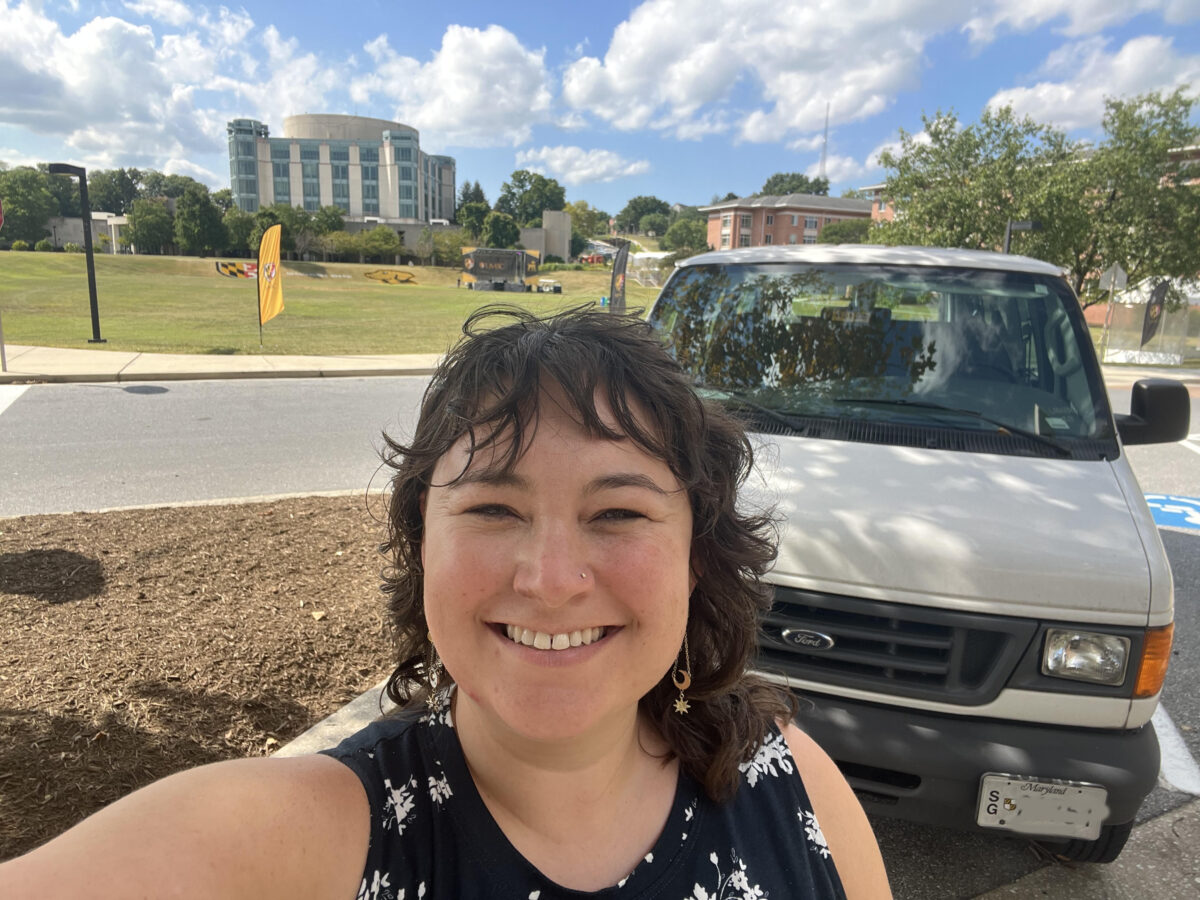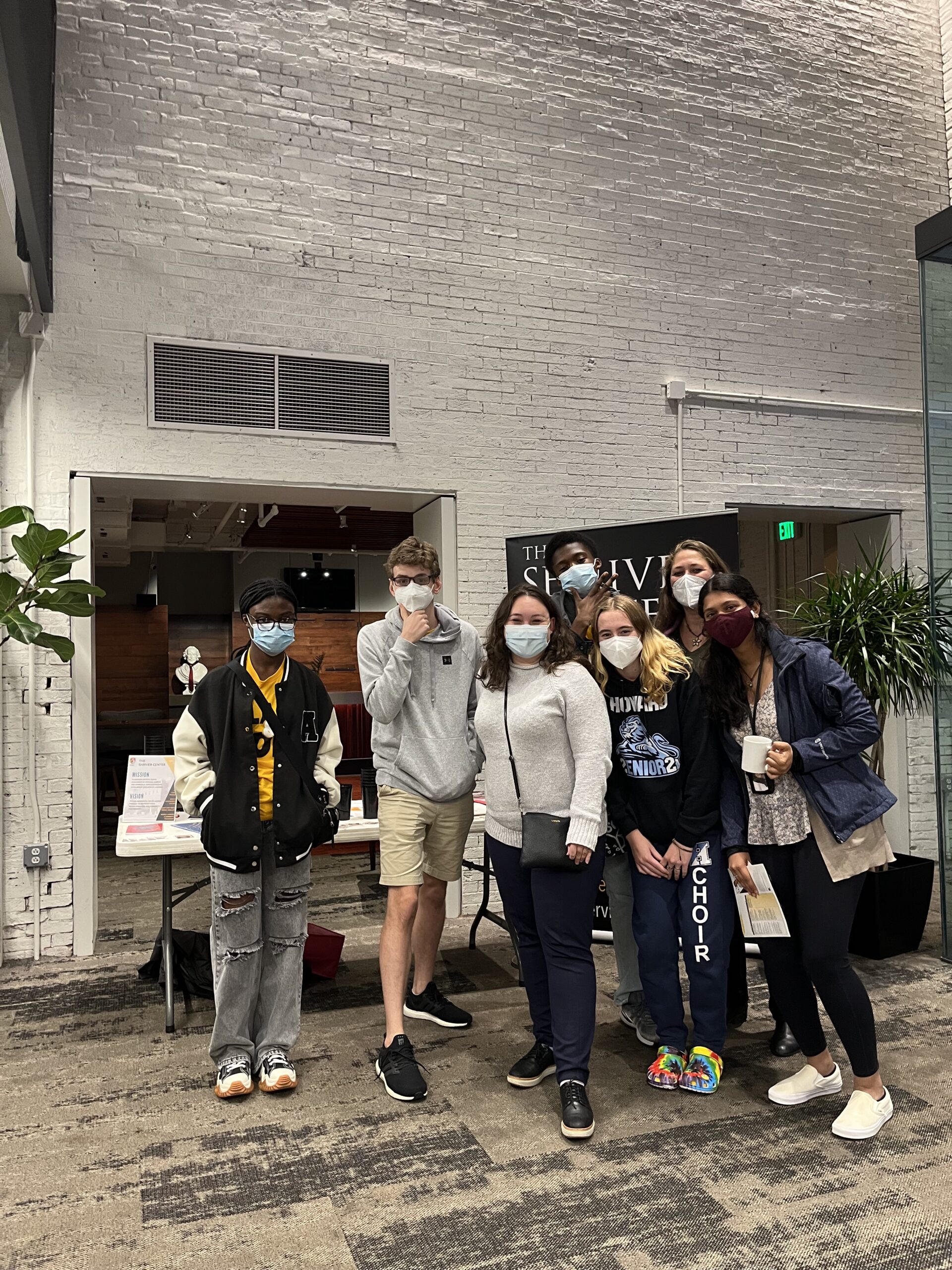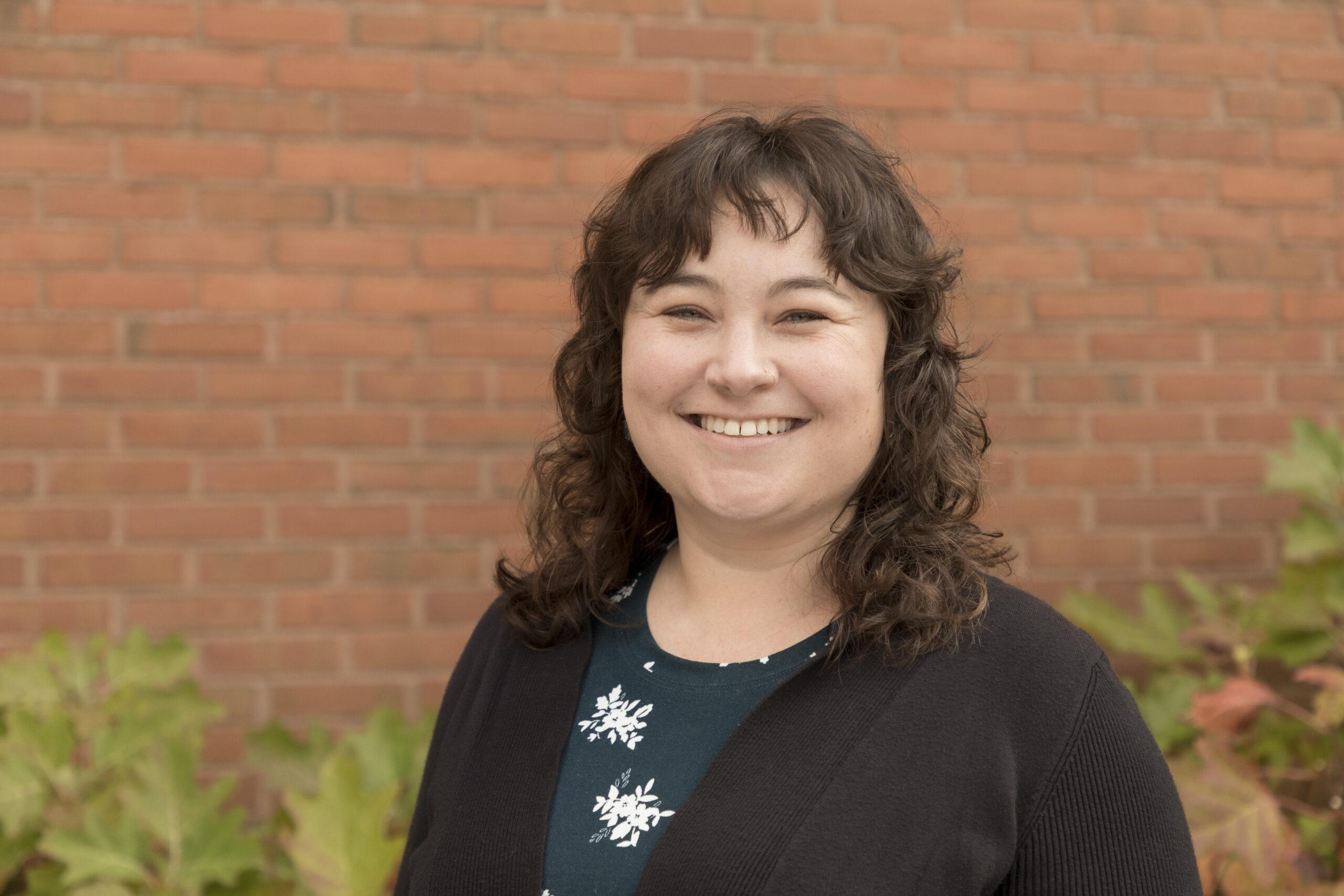Meet Emily Passera, the program coordinator for service-learning and community engagement in the Shriver Center. In her role, Emily coordinates the student leadership development programs for the residential Shriver Living Learning Community and serves as a member of the Exempt Staff Senate. She also facilitates school, nonprofit, and government agency partnerships with UMBC and coordinates implementation of applied learning courses across campus with a focus on career readiness, experiential learning, and storytelling. Her not-so-secret recipe for bringing joy to her job? Saying “yes” as much as possible! Take it away, Emily.
Q: What’s the one thing you’d want someone to know about the support you find here?
A. Collaboration is such a key value of UMBC. I feel well known and supported across academic and student affairs. I connect weekly with the Center for Democracy and Civic Life, The Honors College, Transfer Student Initiatives, and the three colleges because a student-centered approach is fundamental to collaborative work.
Q: Tell us about someone in the community who has inspired you or supported you, and how they did it.
A. UMBC’s first-year students continue to impress me every year, and it takes a lot of work to help transition these learners into our community. Laila Shishineh and her office (Academic Engagement and Transition Programs) support programming and academic resources to see them succeed. Somehow, Laila also has time to lead my favorite Monday night tradition, Bootcamp in the RAC. As a First-Year Experience instructor and a human who needs exercise for a balanced lifestyle, I feel supported by Laila’s leadership!

Q: Tell us about what you love about your academic program or an organization you’re involved in.
A. I love being a Community Service and Learning Practicum (PRAC 096) instructor. Through the PRAC 096 course, community engagement continues to help UMBC students become more attuned to their local community and interpersonal skills. While serving the Baltimore region weekly, our students reflect on issues such as neighborhood poverty, maternal and mental health, food justice, education access, disability rights, and grassroots social change. I am so impressed how exposure empowers these leaders. They also connect with community members at UMBC from different lived experiences and find similarities and projects to work together on. Our community partners want more UMBC students to engage!
Q: What brought you to UMBC in the first place?
A. “My UMBC Why” is the proximity to enthusiastic non-profits, school programs, and leadership in the community! The arts, humanities, and sciences are all well-represented and employ experts in creating applied learning experiences for all ages of community. UMBC students can explore their classroom learning outside Hilltop Circle.
“Collaboration is such a key value of UMBC. I feel well known and supported across academic and student affairs.
Q: Tell us about the people who have helped you at UMBC, and why their HOW made such a difference to you.
A. “My UMBC How” is the staff mentorship program. I’ve connected with staff who put in countless hours running programs, like creating a restorative practices community. Every professional development opportunity I hear about I invite my mentors. Walking the loop around campus and sitting outside Starbucks with my mentors has created the environment to have deep conversations about UMBC culture, personal mission, and collective support.
Q: Are you involved in any campus organizations?
A. Exempt Staff Senate! I really value a shared governance who listens and advocates for staff representation in the holistic care of the workforce here at UMBC. We work to address issues and leadership transitions as a collective unit.

Q: What part of your job do you enjoy the most and why?
A. Through my role, I support students discovering that it’s safe to explore their interests while at college. While on-boarding students with their campus partners, I ask deep questions about their goals and ideal work environments. I consider their responses and invite them to try something outside their comfort zone. Facilitating reflection on these community engagement experiences better prepares them to put the experience on their résumé, identify leadership skills, and continue to learn in an active environment.
Q: What’s next for you, Emily?
A: I am starting to expand my interests in learning analytics. I think the Ed.D. in Educational Leadership at Frostburg State University will help support my career growth.
Q: What would you tell someone who is considering a career at UMBC?
A. Arbutus is a close neighbor, and OCA Mocha is a great work environment!
* * * * *
UMBC’s greatest strength is its people. When people meet Retrievers and hear about the passion they bring, the relationships they create, the ways they support each other, and the commitment they have to inclusive excellence, they truly get a sense of our community. That’s what “Meet a Retriever” is all about.
Learn more about how UMBC can help you achieve your goals.
Tags: Academic Engagement and Transition Programs, AETP, Center for Democracy and Civic Life, Community Service and Learning Practicum, Exempt Staff Senate, First-Year Experience, Honors College, Meet a Retriever, PSS, the shriver center, Transfer Student Initiatives

